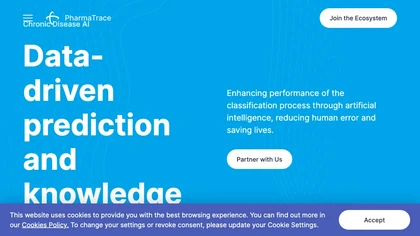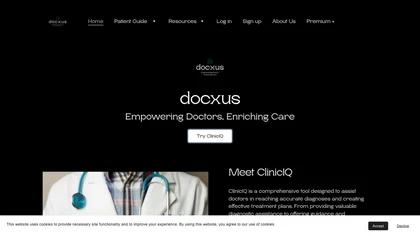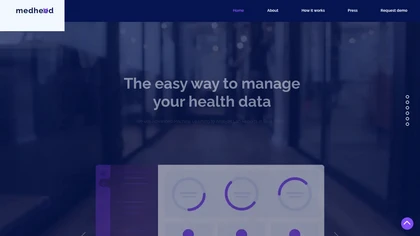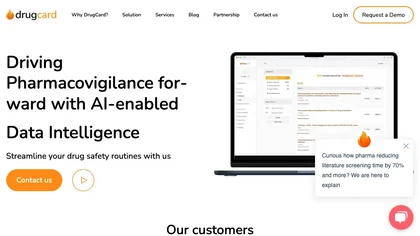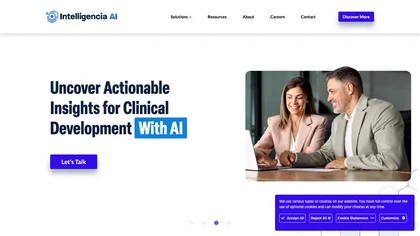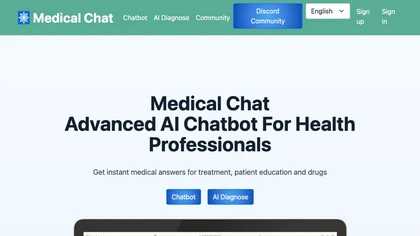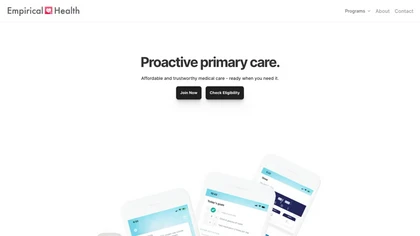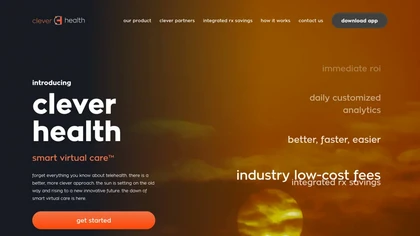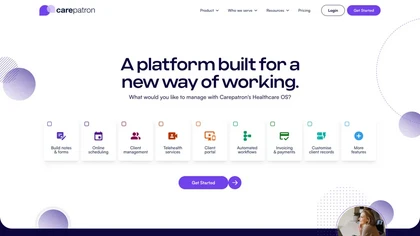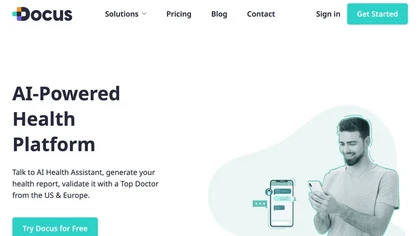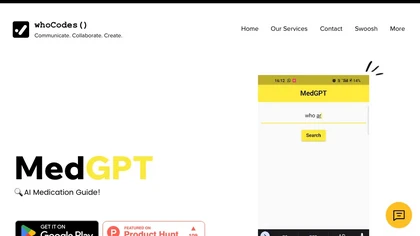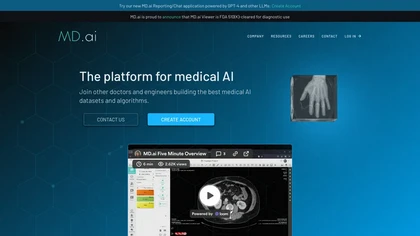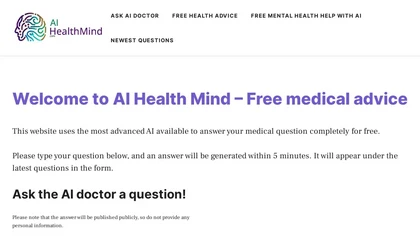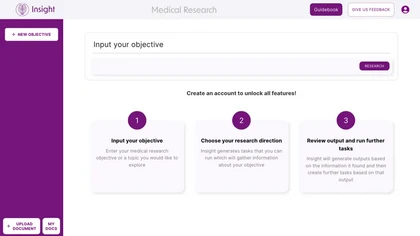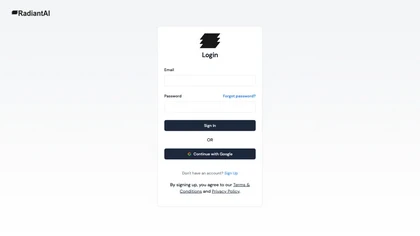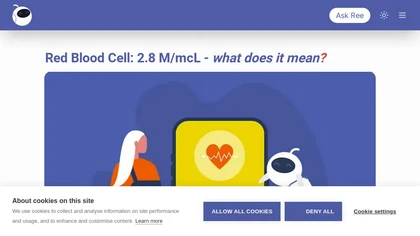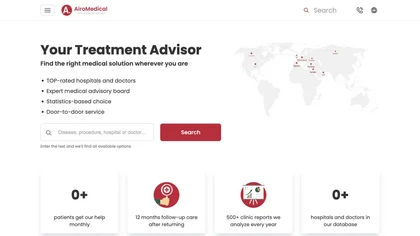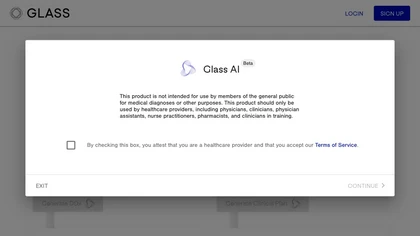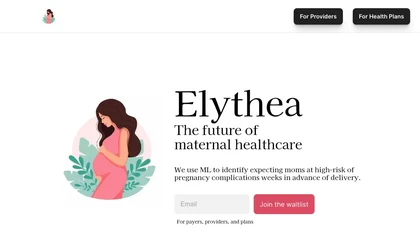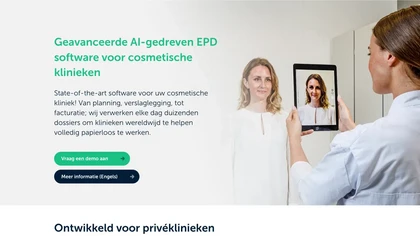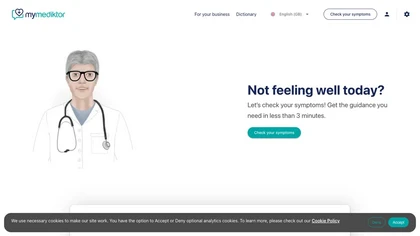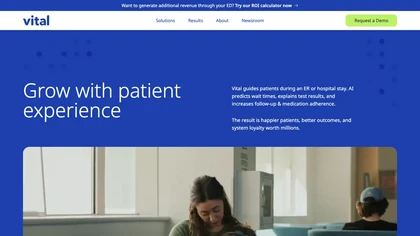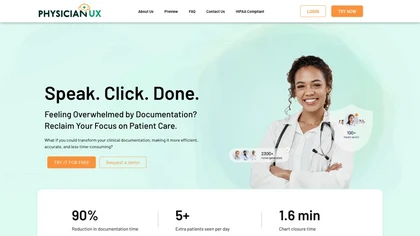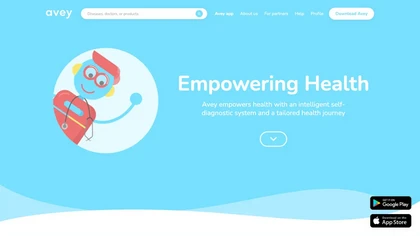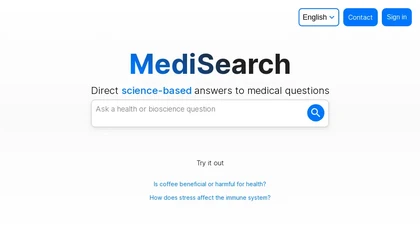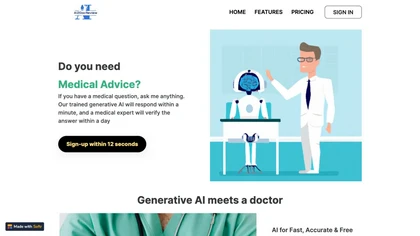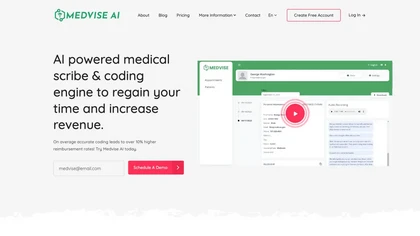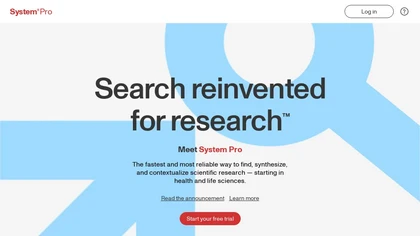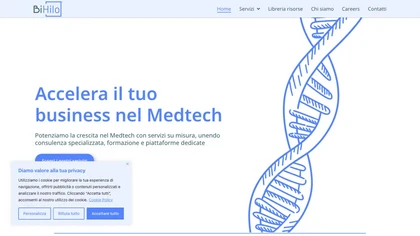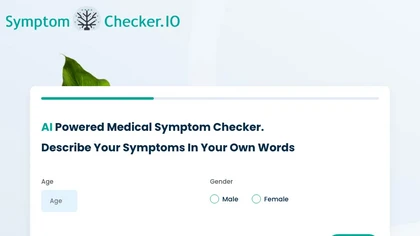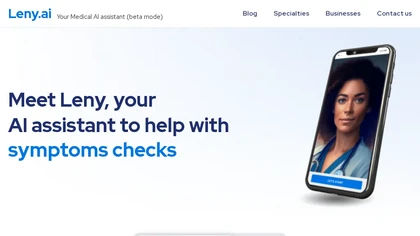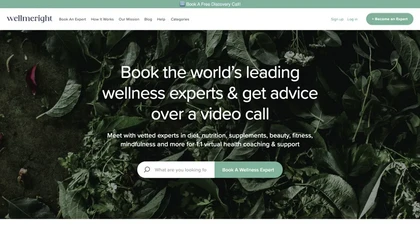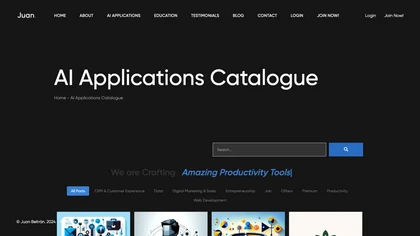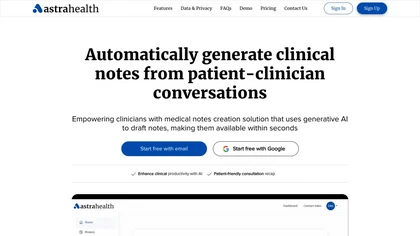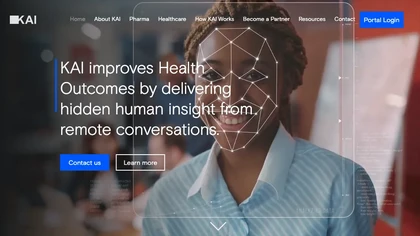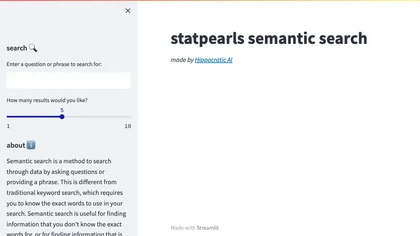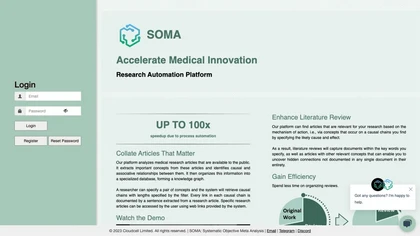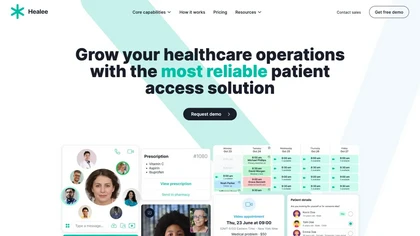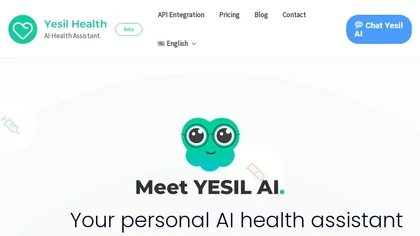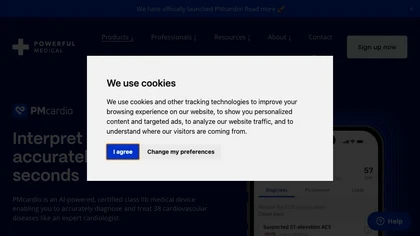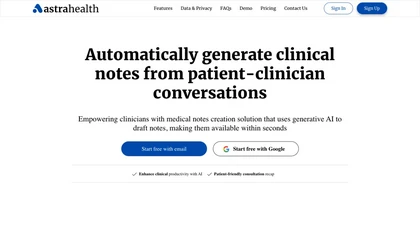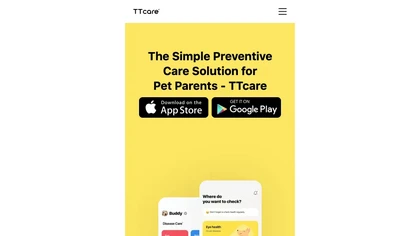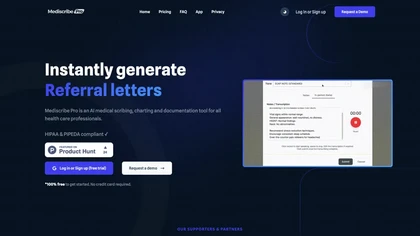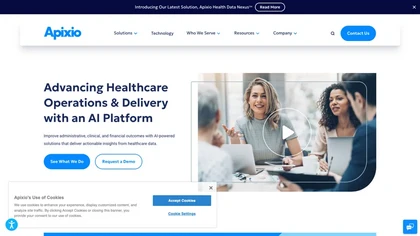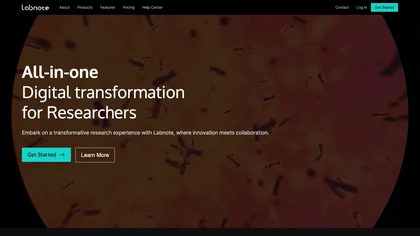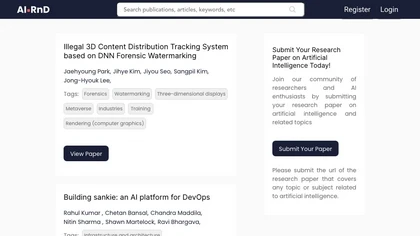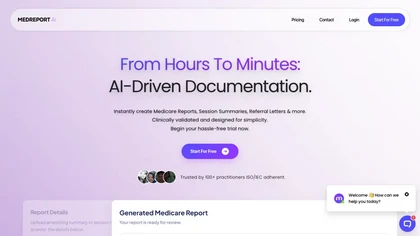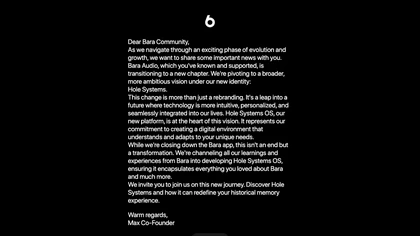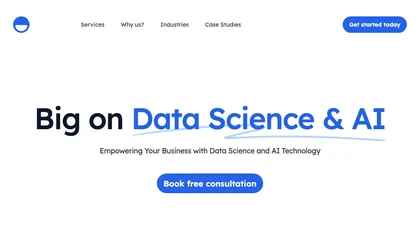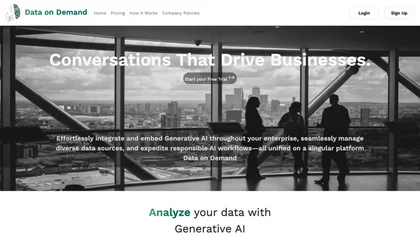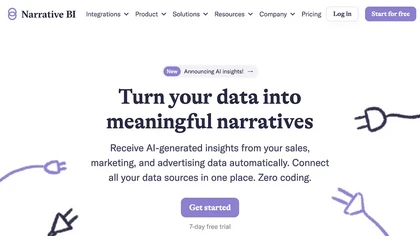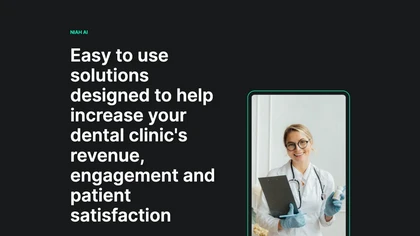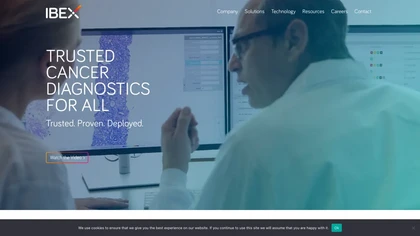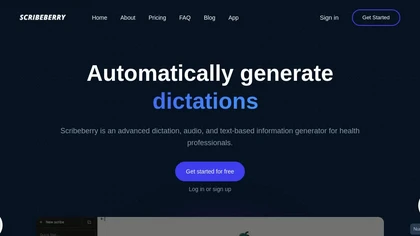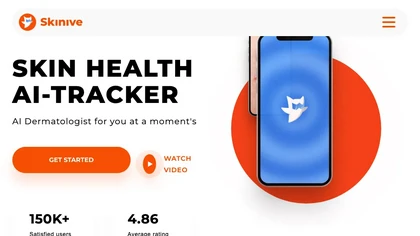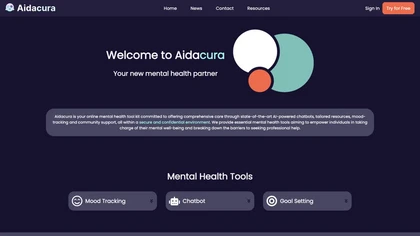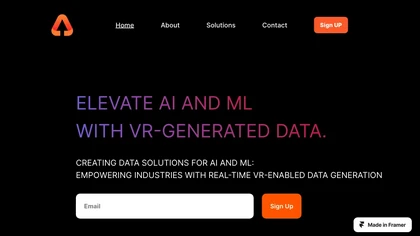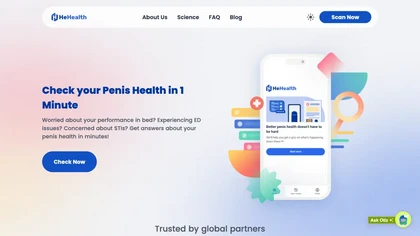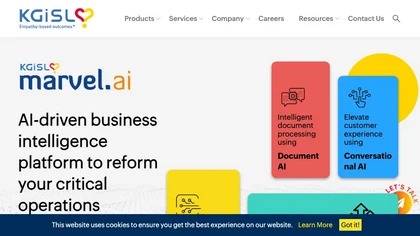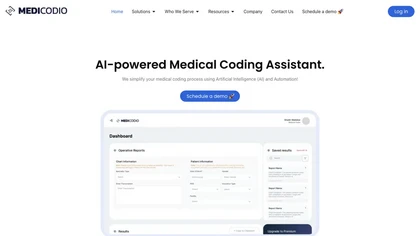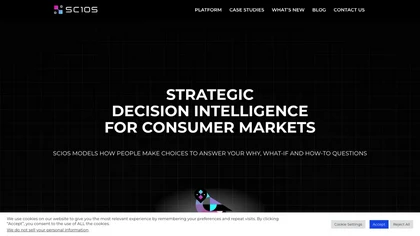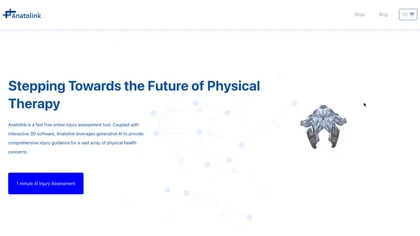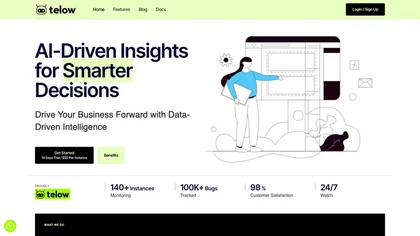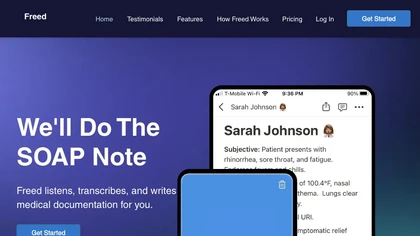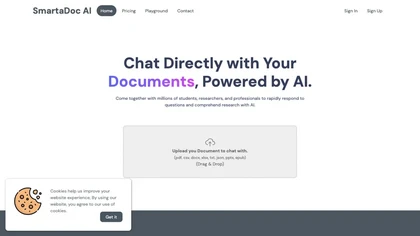AI use cases for Healthcare Management
Generative AI can be applied in various applications for healthcare management. Here are some examples to explore below for inspiration with AI tools to get you started with using AI in healthcare management.
🛠️ 70 AI tools for Healthcare Management
Explore a dynamic list of some of the most popular tools to get you started with various AI use cases and applications for Healthcare Management to streamline your workflows and productivity today.
PharmaTrace features
- Chronic disease management
- Early disease detection
- Economic costs reduction
- Budget forecasting
- Decision support
Lunit features
- Data analysis
- Medical diagnosis
- Cancer treatment planning
- Drug discovery
- Patient monitoring
DocXus features
- Assist in accurate diagnoses
- Create effective treatment plans
- Streamline diagnostic process
- Offer resources and knowledge for ongoing learning
- Provide patient guide for disease management
Medheed features
- Real-time analysis of lab reports
- Detailed insights for medical professionals and patients
- Comprehensive analysis of patient records
- Fast and cutting-edge technology
- Accurate diagnoses and efficient treatments
DrugCard features
- Automates drug safety routines
- Multiple languages and countries
- High-performance screening
intelligencia.ai features
- Measuring the likelihood of success in drug development
- Identifying underlying drivers contributing to technical and regulatory risks
- Optimizing clinical trial design
- Standardizing risk evaluation processes
- Transparent and explainable AI features
Medical Chat features
- Instant medical answers
- Diagnoses
- Patient education
- Comprehensive drug search
- Side effects monitoring
🔥
Create your account, save tools & get personal recommendations
Receive a weekly digest of our handpicked top tools.
Unsubscribe anytime
Empirical Health features
- Proactive primary care
- Integration of consumer wearables for health monitoring
- Consultation with doctors via mobile app
- Personalized care plans
- Compatibility with major insurance providers
cleverhealth.ai features
- AI technology utilization
- Quick consultations with average visit time
- AI decision support for accurate diagnoses
- AI-powered chatbot for mental health support
- Cost savings on medications
Carepatron features
- Billing and coding functionality
- Clinical notes documentation feature
- Health records management capability
- Online payments integration
- Telehealth services support
Docus.ai features
- Generating health reports
- Seeking information related to health concerns
- Facilitating communication with top doctors
- Providing personalized responses based on health details
- Recognized for its features by reputable sources
MedGPT features
- Medical search
- Diagnosis
- Treatment recommendations
- Communication and collaboration
- Creation
md.ai features
- DICOM support
- Web-based annotation tools
- Creation of bounding box or freeform annotations
- API, Jupyter integration, and client libraries
- Model development, training, validation, and deployment facilitation
AI Health Mind features
- Generate medical advice
- Answer medical questions
- Powered by cutting-edge technology
- Use of reliable medical databases
- Easy to use
Insightai.dev features
- Guided research process
- Task generation
- Output based on gathered information
- Task iteration based on output
- Efficient navigation
RadiantAI features
- Seamless login process
- Comprehensive database
- Streamlining search for medical references
- User-friendly interface
- Advanced search capabilities
Ree AI features
- Explain medical reports
- Recommend supplements
- Check drug interactions
AiroMedical features
- Comprehensive health library with information on medical treatments and specialties
- Search for top-rated hospitals and doctors
- Support from an expert medical advisory board for personalized recommendations
- Simplifies the process of selecting treatments, clinics, and doctors
- Collaboration with world-leading clinics covering a wide range of specialties
DotScript features
- Search diseases, drugs, and symptoms
- Utilizes advanced genetic and medicinal knowledge for searching
- User-friendly interface for desktop and mobile devices
- Dedicated chatbot functionalities for genetic and medicinal inquiries
- Efficiently searches various resources to offer optimal solutions
Glass.health features
- Generating medical advice
- Making diagnoses
- Creating clinical plans
- Analyzing patient data
- Providing recommendations based on input
Elythea features
- Integration with ehr systems
- Personalized insights
- Early intervention
Clinicminds features
- Scheduling
- Treatment Records
- Quinn AI
- Video Calls
- Gift Cards
- Payments
- Cross-Device
- QMS
- Integrations
- Compliance & Security
Mediktor features
- AI-based virtual medical assistant named Oskar
- Quick symptom checking within less than 3 minutes
- Personalized pre-diagnoses and recommendations
- Developed by doctors and AI experts
- Clinically validated tool with emphasis on ethical and security standards
vitaler.com features
- Predict wait times
- Explain test results
- Improve medication adherence
- Revolutionizes EHR data into personalized digital interfaces
- Provide patient education, plain-language test results, real-time surveys, service requests, follow-up scheduling, and predicted wait times in one platform
Physician UX features
- AI-powered documentation tool
- Voice-to-text functionality
- Intelligent data sorting
- HIPAA-compliant platform
- Free trial option
Avey features
- Self-diagnostic system
- Tailored health journey
- Accurate diagnosis
- Appointment booking with doctors
- Medical condition coverage
MediSearch features
- Finds trustworthy medical information
- Answers medical questions
- Scientific article-based
- Useful in finding health information
AI2DocReview features
- Quick medical advice
- Trained generative AI responses
- Accuracy verification by medical experts
- Filtering out inaccurate information
- Affordable insurance and reservation price testing options
Medvise features
- Automating documentation tasks
- Real-time scribe capabilities
- Automated data entry
- Precise medical coding
- Speaker recognition and customization features
System Pro features
- Synthesizing relevant scientific data
- Sifting through vast amounts of data
- Offering a faster and more reliable search experience
- Seamlessly exploring a wide range of topics
- Contextualizing research findings
BiHilo features
- Specialized Consulting
- Dedicated Appointments Managers
- Innovative and Customized Training
- Supplier Networking Capabilities
SymptomChecker.io features
- Symptom description
- Medical history
- Current medication use
- Recent medication use
- Medical tests
Leny features
- Instant support for medical professionals
- Streamlines administrative tasks
- Offers a symptom checker
- Provides medication management
- Enhances communication between medical professionals and patients
Well Me Right features
- AI matching and Health Coach capabilities
- Personalized coaching
- Dietary tracking, nutritional guidance
- Guided meditation sessions
- Adaptive health partner
Ai Application Catalogue features
- User-friendly interface
- Privacy-focused
- Search functionality
- AI application categorization
- Information about functionalities
Astra Health features
- Generative AI technology
- Automatic drafting of clinical notes
- Empowerment of clinicians with AI-generated notes
- Enhancement of medical scribe workflow efficiency
- Improved documentation turnaround time
Kai features
- Conversation
- Remote
- Delivering
- Hidden
- Human
- Insight
- Health
- Outcomes
Hippocratic AI features
- Semantic search
- Healthcare professionals
- Statpearl data source
- Streamlined
- Ftp download
SOMA features
- Automating research process
- Collating and analyzing medical research articles
- Identifying causal and associative relationships
- Creating a knowledge graph for exploration
- API access for building pipelines in Python, R, or other languages
Healee features
- Patient scheduling for capacity management
- Rule-based patient-provider matching
- Self-scheduling capabilities
- Multi-channel communication tools
- AI assistance for patient engagement
Yesil Health features
- Symptom analysis
- Lab result analysis
- Customized lifestyle advice
- Personalized diet plan
- Exercise plan
Lavo AI features
- Simulate drug behavior at atomic level
- Accelerate drug development
- Help pharmaceutical companies
- Bring therapies to patients
PMcardio features
- Diagnosing 38 cardiovascular diseases
- Scanning ecg images
- Providing detailed patient diagnostic reports
- In-app treatment recommendations
- Triage suggestions
Astra Health AI features
- Automatically generates clinical notes
- Uses generative AI
- Reduces documentation time for clinicians
- Enhances productivity during clinical appointments
- Generates clinical notes with one click
TTcare features
- Symptom detection
- Veterinary advice
- Online consultations
- Health management
- Task reminders
Mediscribe Pro features
- Quick generation of notes in 10 seconds
- Extraction of medical codes
- Automatic creation of referral letters
- Seamless integration with existing EMR systems
- Live-patient conversation support for note generation
apixio.com features
- Health Data Nexus platform for integration, analysis, and utilization of healthcare data
- AI-powered solutions for risk adjustment, payment integrity, and health data management for health plans
- AI-powered solutions to improve documentation, close diagnosis gaps, and facilitate data exchange for providers
- Empowering healthcare organizations to simplify operations and care delivery
- Distilling timely insights from patient health data
Labnote features
- Manage material inventory
- Visualize structured protocols
- Convert research reports into digital formats
- Data visualization and analysis
- Predict experimental outcomes using machine learning
AI-RnD features
- Access
- Share
- Disseminate
- Promote
- Collaboration
MedReport AI features
- Instant creation of Medicare reports
- Generation of session summaries
- Generation of referral letters
- Option to choose from industry-standard templates
- Ability to create custom workflows
Bara Platform features
- Advanced artificial intelligence tool
- In-depth analytics and predictive insights
- Cutting-edge algorithms and machine learning capabilities
- Intuitive dashboard for visualizing complex data sets
- Actionable insights for strategic decision-making
Think AI Agency features
- Natural language processing
- Computer vision
- Recommendation systems
- Predictive analytics
Data on Demand features
- Seamless integration of generative AI throughout enterprises
- Management of diverse data sources
- Expedited responsible AI workflows
- Efficient extraction and analysis of relevant data
- Visualization of complex datasets
Narrative BI features
- All the metrics under one roof
- Natural language generation
- Anomaly detection
- Scheduled reports
- AI driven insights
- Slack chatbot
- Multiple data channels integrations
Saas With AI features
- Image upload for analysis
- Object recognition
- Scene recognition
- Text recognition
- User-friendly interface
Niah AI features
- 24/7 healthcare companion support
- Quick and accurate assistance
- Personalized well-being recommendations
- Guidance on healthcare needs
- Integration with existing management software
ibex-ai.com features
- AI-Powered Cancer Diagnostics
- Field-proven diagnostic solutions
- Innovative AI platform - Galen Prostate and Galen Breast
- Utilizes deep learning technologies
- Enhances cancer detection accuracy across multiple tissue types
ScribeBerry features
- Template selection
- Medical context
- Additional notes
- Template personalization
Skinive - AI Dermatologist app features
- Skin health tracking
- Ai-based analysis of skin issues
- 3d skin map
- Low threat level scheduling
Aidacura features
- AI-powered chatbots
- Tailored resources
- Mood-tracking
- Community support
- Natural language processing
DataZenith features
- Vr data generation
- Customizable vr environments
- Pixel-perfect annotations
- Intuitive no-code interface
- Real-time data creation
Hehealth.ai features
- Doctor-validated sexual health answers
- Comprehensive scan summary with 90% accuracy in detecting over 10 penile diseases
- Global team of healthcare professionals providing information and recommendations
- 100% anonymized and encrypted health data
- Results ready in just one minute
MarvelAI
4.6MarvelAI features
- Comprehensive data analysis
- Informed decision-making
- Superior customer experience
- 67% reduction in operational costs
- 100% data privacy
CODIO features
- Automated code suggestions
- Integration with EHR, EMR, and physician notes
- Accelerated coding process
- Expert validation for accuracy and compliance
- Reduction of coder burnout
Scios.ai features
- predictive modeling
- prescriptive analytics
- scenario exploration
- data-backed decisions
- human-centric AI
Anatolink features
- Utilizes generative AI
- Interactive 3D software
- Offers quick and comprehensive analysis
- Provides insights and guidance
- Suitable physiotherapy recommendations
Dream Kid features
- Writes children's books
- Narrates stories
- Illustrates books
- Offers 10 unique story settings
- Tailors stories to child's age and challenges
Telow features
- AI-powered data analysis
- Integration with GA4
- Data intelligence platforms
- Precision in tackling intricate challenges through data intelligence
- Optimized for data-driven analysis
Freed AI Medical Scribe features
- Automated medical documentation
- Self-learning feature
- Personalized documentation
- Easy review, edit, copy functionality
- Hipaa-compliant
SmartaDoc AI features
- Support for multiple file formats like PDF, CSV, DOCX
- Chat history for tracking interactions
- Document summarization capabilities
- Quick starting questions to facilitate user engagement
- Efficient extraction of key information from documents
